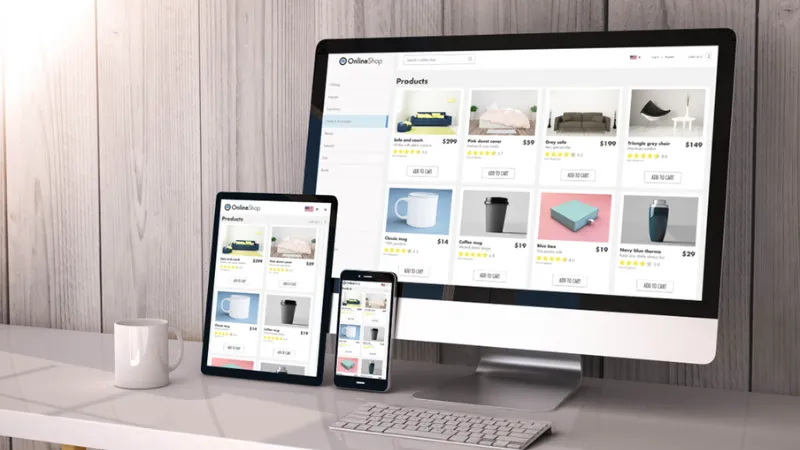From Chaos to Clarity: Tools Every Startup Needs to Manage Growth
Oct 22, 2025 | By Team SR

Every startup begins with energy, a handful of founders wearing multiple hats, chasing opportunity, and improvising their way through the unknown. But once growth hits, that same energy can become noise. Sales outpace systems, customer data scatters across platforms, and “just figure it out” stops working.
Scaling a company isn’t about adding more people to handle the chaos; it’s about implementing the right tools to make your growth sustainable.
The startups that move from reactive to proactive do so by investing early in structure. Not to slow down innovation, but to keep it moving in the right direction. But where do you start? We’re here to help.
A Unified Platform for Managing Customer Relationships
Startups thrive on relationships, but scattered systems kill visibility. It’s not uncommon for a growing startup to have leads in spreadsheets, contracts in email threads, and client updates buried in Slack messages. That fragmentation leads to mistakes, missed renewals, and inconsistent service.
RECOMMENDED FOR YOU

Why Financial Services Businesses Make for the Perfect Startup Right Now
Team SR
Dec 16, 2025
Implementing customer lifecycle management software solves that problem by centralizing every part of the client journey, from onboarding and compliance checks to renewal tracking and upsell opportunities. Instead of juggling half a dozen apps, teams get a 360° view of every customer in one dashboard.
These systems also integrate easily with billing tools and analytics platforms. For example, a fintech startup can track a client from their first demo through regulatory approval, contract signing, and post-launch support – all without requiring re-entry of data.
The result? Less manual work, faster decisions, and a customer experience that feels personalized at every step.
Automation Tools That Keep Teams Lean and Focused
The beauty of a small startup team is agility, but without automation, agility becomes exhaustion. Every repetitive task, from sending follow-up emails to processing invoices, eats up valuable founder time. Automation tools help reclaim those hours.
Platforms like Zapier, HubSpot, and Make can connect systems so workflows happen automatically. For instance, when a lead fills out a form, it can trigger an automatic CRM update, a welcome email, and a Slack notification to your sales team. No one has to touch it manually.
The impact compounds as you grow. Automated reporting keeps investors informed without spreadsheets. Auto-scheduled social content maintains visibility without constant posting. By removing friction from daily operations, startups can focus on what matters: building products, nurturing customers, and fine-tuning their market fit.
And because automation ensures consistency, your customers benefit too. Every interaction happens on time, in the right tone, and with the right data behind it.
Analytics Systems That Turn Data Into Decisions
Data is a startup’s most underutilized asset. Founders often collect it everywhere, in Google Analytics, Stripe, CRMs, or customer surveys, but rarely consolidate it into something actionable. That’s where analytics systems make all the difference.
Tools like Tableau and Looker integrate disparate datasets to reveal patterns you can actually act on. Want to see how marketing spend translates to lifetime value? Or which product feature drives the highest retention? Real-time dashboards make it possible.
This becomes even more powerful when startups understand how to collect and organize customer information responsibly. Building a secure, compliant data infrastructure from day one not only strengthens decision-making but also builds trust. Investors love transparency, and customers reward it.
The right analytics setup turns gut feelings into evidence-based strategy, a shift that separates growing startups from scaling companies.
Customer Experience Platforms That Drive Retention
Customer acquisition gets the spotlight, but retention builds empires. Loyal users cost less to maintain, buy more often, and become your loudest advocates. Yet many startups still lose focus on the customer experience once the deal is closed.
Modern customer experience (CX) platforms change that by connecting support, engagement, and loyalty tools into one ecosystem. They can analyze sentiment from support tickets, trigger re-engagement campaigns for inactive users, and even predict when a customer is likely to churn.
The smartest founders are learning from industries that have mastered retention. The casino sector, for example, uses behavioral analytics to offer personalized incentives and keep players engaged.
These customer retention lessons, such as targeted rewards, frictionless interactions, and timely communication, can help startups reduce churn rates dramatically.
Paired with lifecycle management systems, CX platforms ensure that every customer interaction – from onboarding to renewal – feels like part of a continuous, thoughtful relationship.
Collaboration Tools That Scale With Your Team
Growth rarely happens in one room anymore. Remote and hybrid teams are now the startup norm, and communication tools can make or break collaboration. Without the right systems, productivity slows and accountability blurs.
Project management platforms like Asana, ClickUp, and Notion provide the structure to keep goals visible and teams aligned. Slack or Microsoft Teams handle quick communication, while cloud drives and shared documentation keep everyone working from the same source of truth.
But the real magic happens when collaboration tools integrate across departments. When customer feedback collected in a support channel automatically feeds into a product roadmap, or when sales data syncs with marketing dashboards, decision-making accelerates.
Startups that document processes early also scale faster later. A simple wiki or digital playbook turns “how we do things” into a shared culture of clarity – preventing the knowledge gaps that slow growth as teams expand.


 Follow us
Follow us Follow us
Follow us













